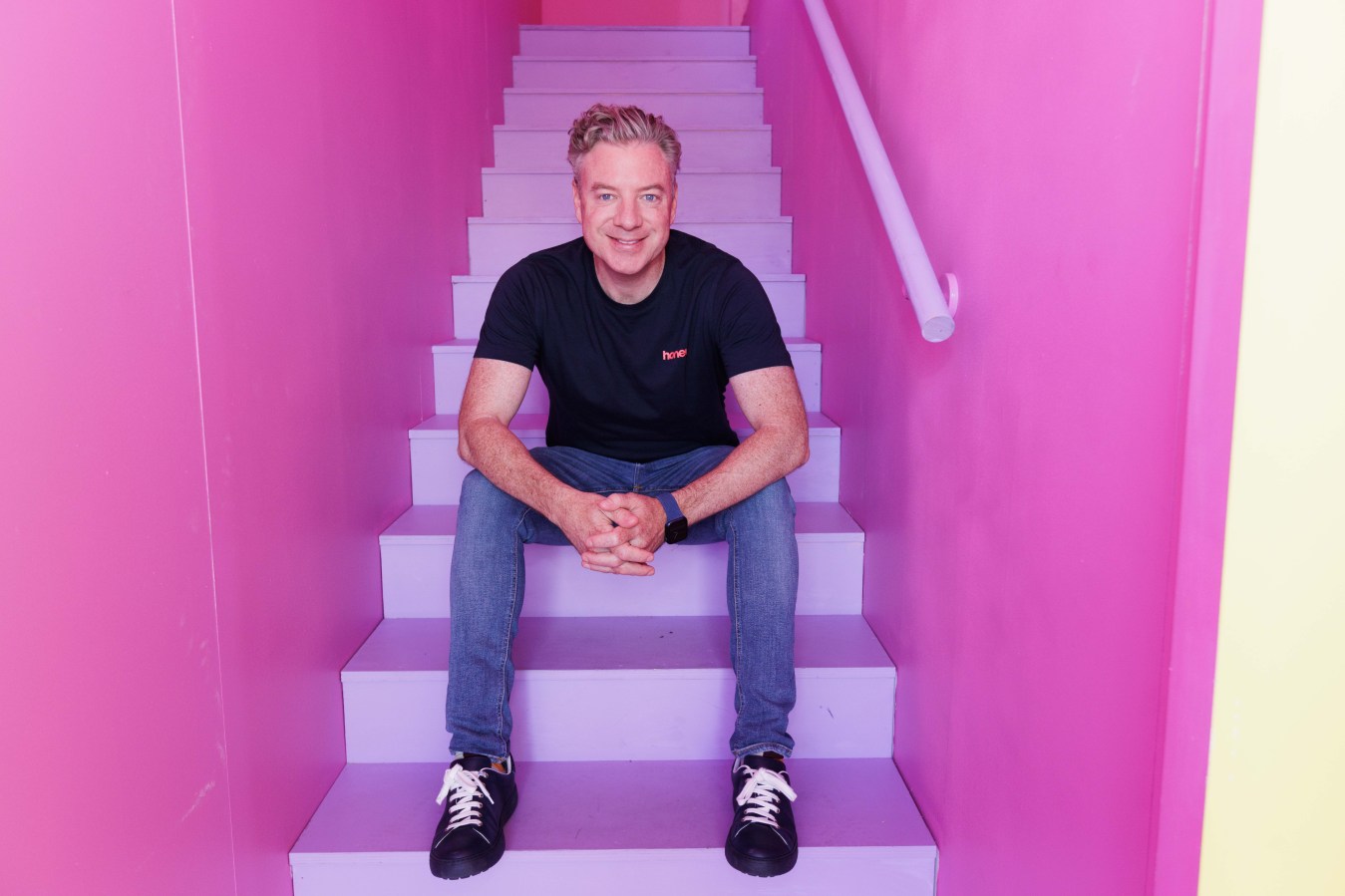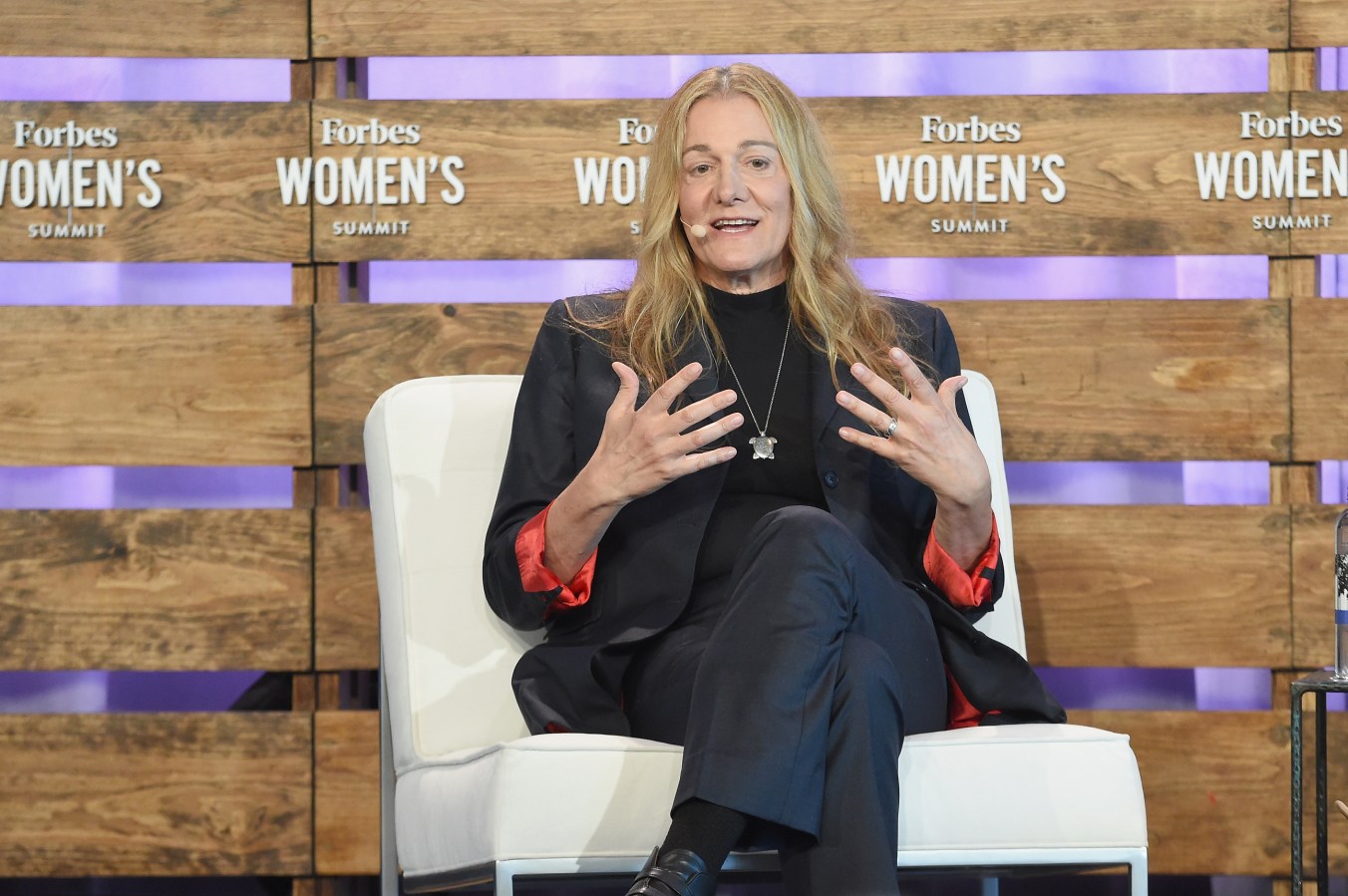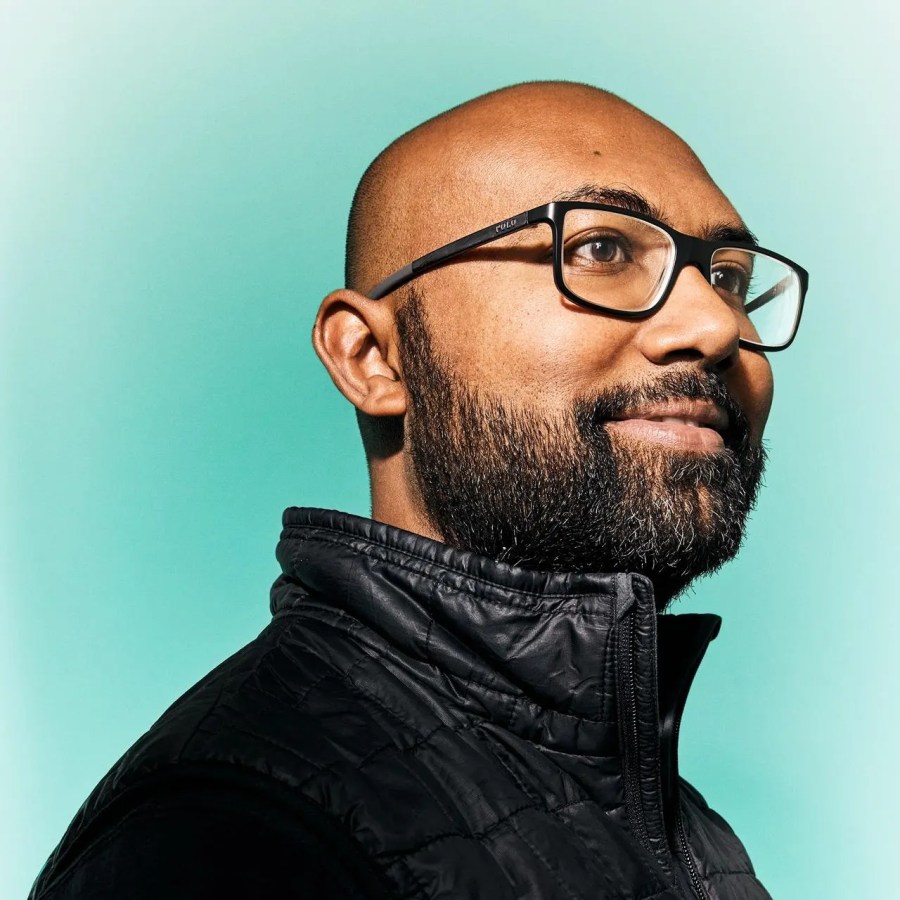While many of us were stockpiling toilet paper in 2020, Jaimee Lupton was busy developing a product to disrupt supermarket shelves. What she launched would go on to be coined liquid gold – and is on track to bring in $300 million in retail sales this year.
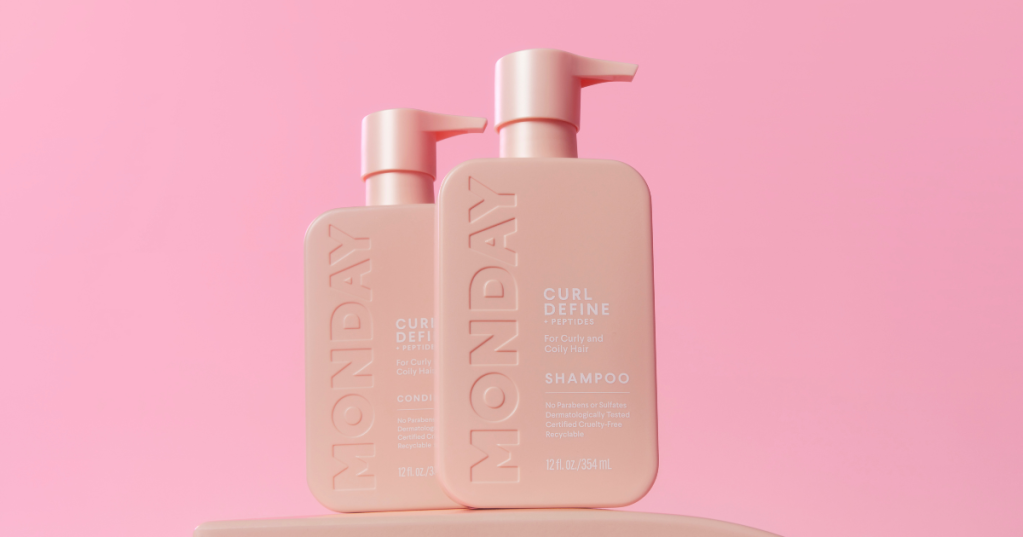
With just four weeks to go until Jaimee Lupton, founder of MONDAY haircare – and a whole suite of other brands, but more on that later – becomes a mother for the first time, she admits she has a lot on her plate.
Her company makes one of the world’s most recognisable shampoo and conditioner bottles, the “millennial” pink MONDAY bottle, coined by beauty industry insiders as liquid gold, a cult favourite, and a global phenomenon. After its 2020 launch, the company is now on track to deliver $300 million in retail sales in 2024, selling about 50,000 bottles per day – or 35 per minute – in over 50,000 retail stores across 33 countries.
“Business can be addictive,” Lupton says. “Especially the success. I mean, in terms of that feeling of, ‘Is this going to work?'”
Lupton, who lived in Sydney for about five years before moving back to her native Auckland just prior to launching MONDAY, says she was inspired to start a business by fiancé Nick Mowbray. He and brother Mat Mowbray are behind toy company ZURU, which was founded back in 2005, and owns a raft of brands, including diaper brand Rascal and Friends. Forbes reports the company hit US$1.1 billion in revenue in 2021.
But Lupton says the problem with a brand like ZURU is that kids’ trends tend to change every 12 weeks, and so a company like that needs to constantly reinvent the wheel. She wanted something with more stability. “He’s done extremely well,” Lupton says. “But my background was luxury PR and communications. I saw what Nick was doing with all these disruptive brands, and I thought, ‘I think I can do this’.”
At the time, the skincare industry was taking off, with brands like Glossier and The Ordinary democratising the market. Lupton had her heart set on joining them, but after walking the aisles of the supermarkets, her and Mowbray realised disrupting the haircare market would be a better bet.
Our North Star mission is that we’re trying to build a modern-day L’Oréal for gen Z and millennial consumers. We want to disrupt the status quo.”
– Jaimee Lupton, MONDAY founder
“We’re standing in front of the hair aisle, and it’s ugly. We wanted to create a really luxury look-and-feel product, but at an accessible price-point. And then also, we wanted to tick all the boxes that were important to gen Zs and millennials: cruelty free, dermatologically tested, good ingredients, and something you wanted to show off in your shower.”
Lupton left the shops and built a mood-board for her brand – which she still has today – filled with magazine cut-outs and Instagram pics, all collaged to form the pastel pink MONDAY vision. “It’s very clear that we’ve stuck to our vision,” Lupton says. She brought an internal branding team on board, sketched the famous bottles, and put together a pitch deck to take to retailers. At $10 a bottle, Coles bit.
“We were lucky that [senior category manager, food prep & entertainment, previously category manager, haircare] Bec Tinnion from Coles was really on board with the vision. She was like, ‘We have been screaming out for something like this’. So, we went exclusive with them. And it was a huge success from about week three. We outsold Pantene in the first six weeks of being on Coles shelves.”
While the company initially engaged a third-party manufacturer to help them create their product, they’ve since invested in their own nine-level research and development facility in China, where they formulate and package their own products. And, they’ve brought on the ex-head formulator for L’Oréal, Dr Kelly Zhang, to lead their R&D efforts.
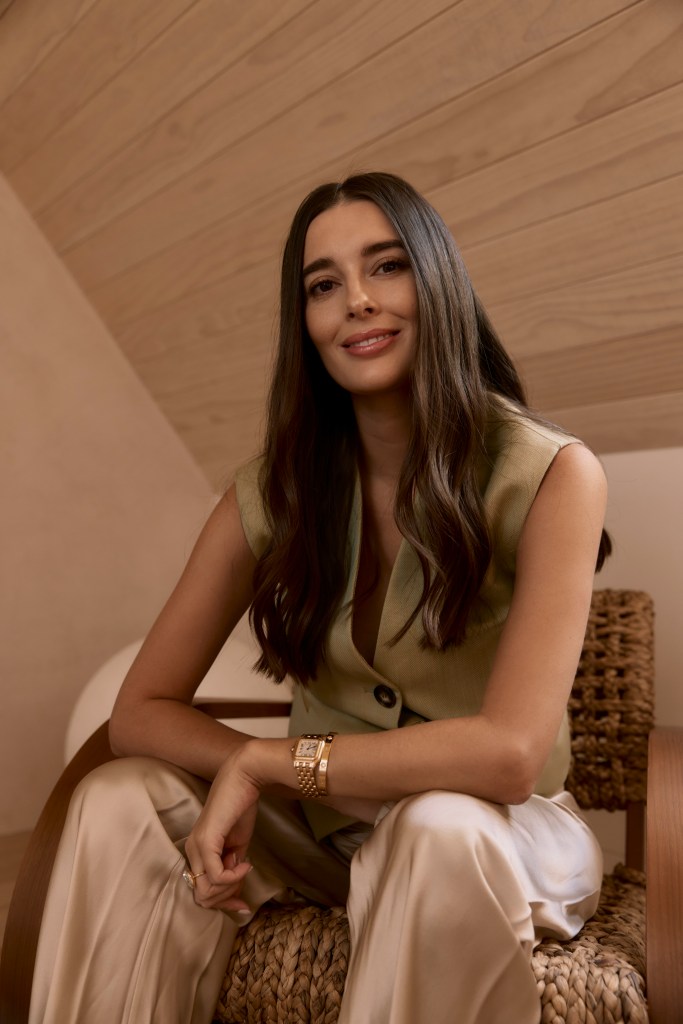
That’s not just a key hire – it’s part of a wider strategy. “We want to hire from big conglomerates that have lived in our future, who have done what we’re trying to do and bring them on board the bus. You’re honestly only as good as your team.”
Social media is also a huge part of MONDAY’s strategy – in fact, they’re one of the most-followed haircare brands, with more than 400,000 followers on the platform. For comparison, Australian-born BondiBoost has 55,000, Olaplex has about 325,000 and The Ouai has about 95,000. L’Oréal Paris has about 720,000. “TikTok has been phenomenal for us. We were an early adopter,” she says. “I think consumers now are more open to trying new brands that they do see on the platform, which has been instrumental to our success.”
But the higher you are, the harder you fall. MONDAY has had its fair share of negativity online – from hairdressers accusing the brand’s products of reacting with chemical treatments, to shoppers claiming the shampoo has caused their hair to fall out.
“At first it really bothered me,” Lupton admits. “But our complaint rate is still sitting at 0.002%, so in the scheme of things, it’s a small number of people making big waves. But I think our success speaks for itself, right? You can’t be on shelves across the EU, which has some of the strictest regulations in the world, or on the shelf at Walmart, one of the biggest retailers in the world, if your product is causing undesirable results for customers. So, now I just see it as noise.”
MONDAY is available in more than 30 countries around the world – including all Walmart stores. And that particular partnership was a boon for Lupton’s next ventures – of which there are ten. Yes – that’s correct. MONDAY will become the oldest sibling to a very large suite of beauty and skincare products, all expected to launch by 2026 under Lupton’s new parent company, which hasn’t got a name just yet (though Lupton is brainstorming as we speak).

Osana Naturals, a wellness personal care range of shampoos, conditioners, hand soaps and lotions created with natural products, will launch in February. Then Walmart shoulder-tapped MONDAY to create an exclusive haircare range for them, titled Being. Then there’s Chalon, which is a fragrance line – “Think Jo Malone en masse,” she says. That’s three new brands by the end of 2024, four the following and 10 total by 2026.
“I think we’re ready,” she says. “MONDAY was our test to see if we could do it, and we have all the key learnings.”
With so many brands coming out of the woodwork, it follows, then, that Lupton has a hefty goal: “Our North Star mission is that we’re trying to build a modern-day L’Oréal for Gen Z and millennial consumers. We want to disrupt the status quo.”
Does she think she poses a threat? “I think we’re mentioned in their quarterly meetings.”
Look back on the week that was with hand-picked articles from Australia and around the world. Sign up to the Forbes Australia newsletter here or become a member here.
